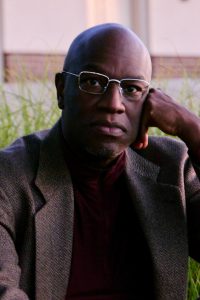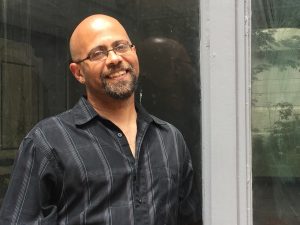
Winner of the 2021 Sandy Crimmins Poetry Contest
While they are sitting
with the empty seats between them
I am cleaning the flies
stuck, dead, to the toilet seat
in the apartment no one has touched
for four months.
Waiting for me
was the musty damp
of unwashed clothes in the laundry
and two rolls of disinfectant wipes
on the made bed.
Today, this is care:
methods to kill what can’t be seen,
maybe isn’t even there,
packaged neatly
for my arrival in their absence,
and the exaggerated repulsion of strangers
long in advance
avoiding meeting.
They breathe through cloth and plastic
even sealed among the clouds,
as I waste sodden paper towels,
lift a window
for a gust of sound to feed the candle flame.
When they land
their message is the same as if
they’d just pulled up downstairs
or at the grocery store on Harrison.
I can’t tell
if they made it there alone.
I am trying to read out of the air
what I can’t hear: the ticking
of the next second,
the shape of air currents
around missing bodies, the things
those molecules run into,
the pressure drop of a kiss.
The sigh before the mold blooms
already like an aftertaste
as I fold the sheets.
Caitlin Kossmann is a PhD candidate at Yale University in the Program in the History of Science and Medicine, currently completing a dissertation entitled ‘The Myth of Gaia: Gender, Ecology, and Community in the Making of Earth System Science.’ A dancer and rock-climber originally from Santa Fe, New Mexico, this is her first poetry publication.





